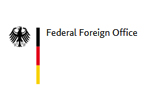Digitisation is driving a profound change in structures and processes within higher education institutions and at the same time, opens up scope for action for them. Digitisation not only makes it possible to increase the efficiency and quality of existing processes; central issues such as the organisation of studies, higher education teaching and the administration of student and academic mobility can be fundamentally rethought. These changed requirements and the corresponding structural adjustments also affect the area of internationalisation of higher education institutions. Before the upheavals initiated by the Covid-19 pandemic, the opportunities offered by digitisation for internationalisation in higher education were only used with relative restraint. Largely unexplored at present is how the massive increase in digitisation brought about by the pandemic has influenced and will influence the internationalisation strategies of public German higher education institutions.
The research agenda of this project focuses on the question of how internationalisation is understood and managed by higher education institutions as a digitally supported development opportunity and what goals, opportunities and risks higher education institutions associate with digitisation in this context. The aim of the project is to identify the strategic perspective of higher education institutions and their bodies and organisational units responsible for internationalisation (vice presidencies/prorectorates; international offices, academic international offices, departments.
The project is guided by the following research questions:
- How does digitisation affect the internationalisation strategies of German higher education institution and their implementation in teaching and studies?
- What effects does digitisation have on the administrative dimension of the internationalisation strategy, i.e. the planning and implementation of digital support processes?
- What are the consequences of the digitalisation of internationalisation for decision-making and cooperation processes in higher education institutions?
- How do the respondents assess the current and future development of the digitisation strategy in the area of internationalisation?
To answer these questions, the study chooses a qualitative mixed-methods approach, which includes a discourse analysis of relevant policy documents, expert interviews with those responsible for the development and implementation of internationalization strategies, and group interviews with representatives of foreign cooperating universities and teachers.
With regard to the projects’ objectives, focusing on higher education institutions' strategies for integrating digital opportunities into their internationalisation strategies will contribute to closing an existing research gap. In addition, conclusions can be derived from the results that are relevant for the further design of political, funding policy and higher education strategies for the use of digital instruments in the field of international exchange at higher education institutions.



